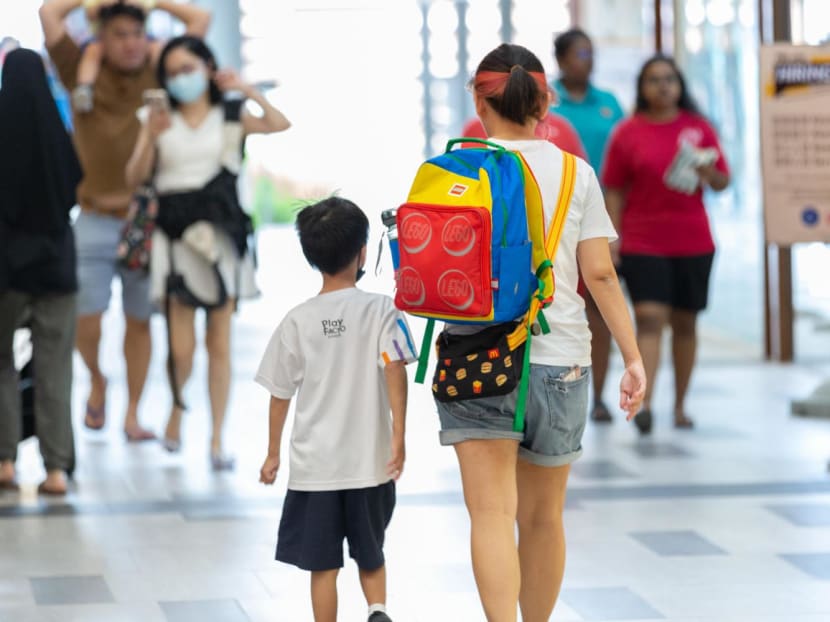Commentary: How new ComLink+ measures empower lower-income families to improve their lives

While these focus areas are evergreen, two features of the new ComLink+ stand out: Empowering families to take ownership of their journey towards a better future, and partnership with private donors to fund these initiatives, says the author.
The recently announced Community Link (ComLink+) scheme for low-income families fleshes out a key plank of Singapore’s Forward Singapore vision, namely the strategic shift towards empowering those in need.
The measures build on the existing ComLink programme where lower-income families with children living in rental flats receive holistic support including job assistance, health services and enrichment programmes for children.
This is made possible through the coordinated efforts of community partners and volunteers who work with the Government’s Social Support Offices to provide wraparound support for these families.
Here, I would like to discuss the significance of the new scheme, which will be trialled for three years, and some noteworthy implications.
SCOPE
ComLink+ zeroes in on four key issues that often hold back lower-income families from escaping the intergenerational poverty trap: Employment, education, housing and debt.
Stable employment is the cornerstone of Singapore’s social security approach, which prioritises work over welfare. A regular income is the means by which citizens are expected to provide for themselves and their families.
Education and housing are the traditional focus of Singapore’s social investment policies, equipping individuals and families with human capital and a housing asset that can appreciate over time.
On the other side of the ledger, ComLink+ will help families unshackle themselves from the financial and psychological toll of debt.
While these focus areas are evergreen, two features of the new ComLink+ stand out: Empowering families to take ownership of their journey towards a better future, and partnership with private donors to fund these initiatives.
INCENTIVES AND EMPOWERMENT
The Comlink+ focus on empowerment is very much in line with the vision articulated in Forward Singapore.
Here, financial incentives are tied to specific progress that lower-income families make in the four key dimensions of employment, education, housing and debt reduction.
Children who attend preschool at least 75 per cent of the time will receive a top-up to their Child Development Accounts (CDA); working adults who hold down jobs that pay regular Central Provident Fund (CPF) contributions will be eligible for cash and CPF top-ups.
Comlink+ will offer a dollar-for-dollar matching for repayment of debt owed to licensed companies. Finally, CPF members will receive a S$2 top-up for every dollar contributed to the CPF Ordinary Account to encourage families to save for the purchase of Housing and Development Board flats.
Together, these four measures address present financial needs and build a strong foundation for the future.
Support for immediate needs can give families the bandwidth and motivation to work towards sustained improvement in family circumstances from one generation to the next.
Extrinsic motivation in the form of incentives has often proved a useful first step in giving individuals and families a taste of success, instilling in them confidence to take charge of improving their financial and family circumstances.
However, incentives alone will not move the needle if beneficiaries lack intrinsic motivation to improve their lives.
Hence, the holistic support under ComLink provided by volunteer befrienders and social workers, remains an integral part of the overall effort.
There is no shortcut to understanding the various motivations and aspirations of lower-income families, and working step by step to help them achieve their hopes and dreams.
SPONSORSHIP AND PARTNERSHIPS
ComLink+ extends the ambit of partnerships, with private donors rather than taxpayers footing the bill for the CDA top-ups and dollar matching for debt repayment.
Anchor partner DBS Bank will also co-fund CPF-Ordinary Account top-ups for home ownership, alongside the Government.
While the state has taken on greater responsibility for redistribution in recent years, the “many helping hands approach” continues to serve Singapore well.
At a time when public expenditures are rapidly growing, it is appropriate that not all social support is fully funded by the Government or taxpayers.
This will enable Singapore to maintain low tax rates for the broad middle class, encouraging work and enterprise.
Instead, there should be an obligation for companies and individuals who have done well to give back to society.
The significance of this goes beyond fiscal considerations. It reinforces the notion that success is a collective endeavour, and that we all depend on one another within the Singapore ecosystem.
Involving private donors builds up a culture of mutual support, which is the bedrock of Singapore’s refreshed social compact arising from the Forward Singapore exercise.
Such giving strengthens social bonds by tapping reservoirs of goodwill and altruism within society. Contributing in this manner is particularly meaningful in that it helps families develop resilience and self-empowerment, going beyond mere charity.
Beneficiaries will in turn be encouraged to pay it forward in due course, reinforcing the virtuous cycle of mutual support and assurance.
Sustaining and scaling up the programme beyond the initial three-year trial will require a stream of corporate and individual donors.
Their preparedness to back the programme will depend on the results achieved. This in turn depends on the commitment of participating families to make behavioural changes to improve their financial and life circumstances.
While this is not easy, there is reason to be hopeful if community partners continue to work closely with families, giving them the necessary encouragement and support.
GROUND-UP, COORDINATED EFFORT NEEDED
The latest ComLink+ efforts should be seen in the larger context of Singapore’s socioeconomic development, which has always been characterised by inclusivity.
This must continue if Singapore society is to hold together amid rising costs and economic volatility.
As Singapore’s economy matures and social divisions stratify, all members of society will have to work harder than ever to keep inequality in check and sustain social mobility.
Central to this effort is ensuring that no one gets left behind.
With ComLink+, the Government is rolling out further support in key areas for the more vulnerable in society, with an emphasis on individual agency and empowerment.
This approach to social support seeks to reinforce rather than erode self-responsibility, while concurrently strengthening societal bonds.
Given the scale of the task, the effort should not stop here.
Social service agencies and other voluntary organisations must continue to experiment and scale up solutions to meet myriad social needs and challenges, particularly those faced by lower-income families.
Ground-up initiatives allow for a diversity of approaches to be tried, and interventions tailored to specific needs within the community.
At the same time, these efforts should be dovetailed with ComLink+ to streamline support for families in a holistic and coordinated way.
Such a system of social support — characterised by empowerment, partnerships and coordination — will give low-income families the best chance of thriving in the years ahead.
ABOUT THE AUTHOR:
Terence Ho is an associate professor in practice at the Lee Kuan Yew School of Public Policy and the author of the book, Governing Well: Reflections on Singapore and Beyond.








